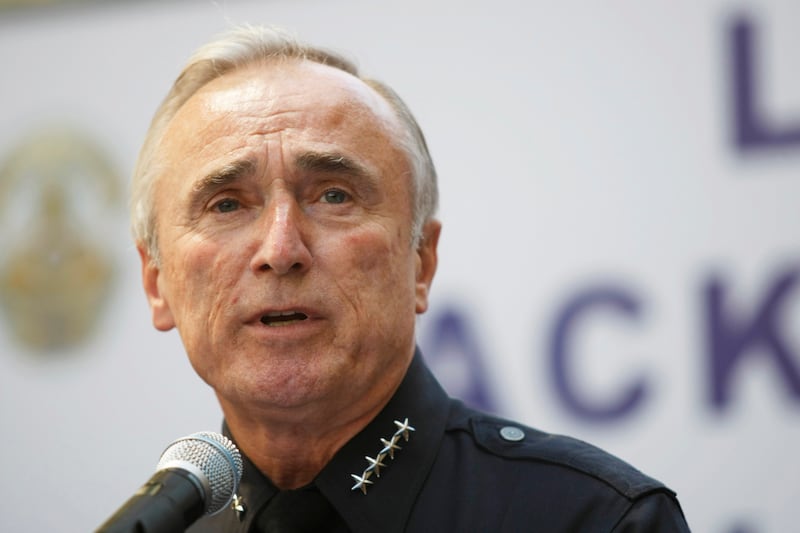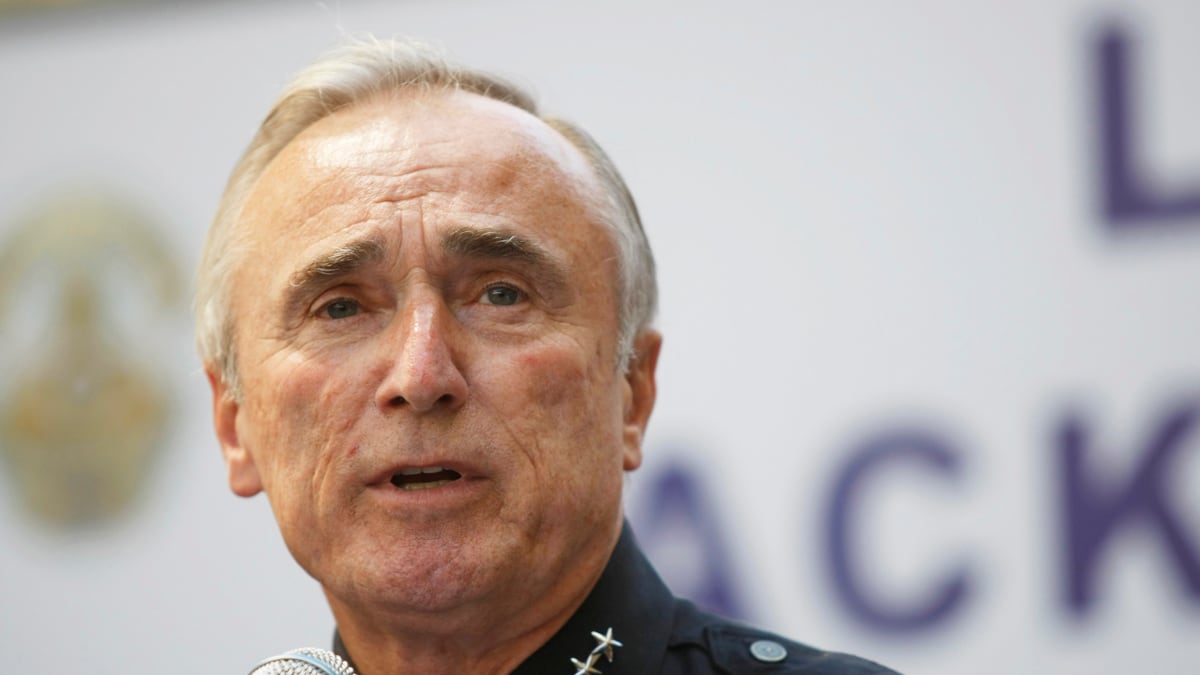Bill Bratton used to be a welcome figure in Britain. As the police chief who spearheaded successful crackdowns on crime in Los Angeles and New York, he was highly sought after by U.K. politicians and senior officials, including Prime Minister David Cameron and London Mayor Boris Johnson. A nation struggling to contain its growing problem with gang warfare seemed quite ready to take lessons from the 63-year-old “super-cop.”
That warm welcome is now history. An acrimonious war of words between Britain’s government and police forces has erupted in the wake of last week’s rioting in London and other English cities—and Bratton finds himself caught in the crossfire.
Forget the idea—floated by Cameron before the riots—that Bratton might fill the vacancy at the head of London’s police force. Now even the prime minister’s invitation to Bratton over the weekend to serve as a part-time unpaid consultant on gang crime has prompted fierce complaints inside the U.K.
The opposition to Bratton comes partly from within Cameron’s own party. It was Home Secretary Theresa May who effectively blocked Bratton’s chance at the Scotland Yard job by restricting the post to British nationals. And when it comes to Bratton’s record, fellow Conservatives are now sounding off with a new note of skepticism. “The read-across from American to the U.K. is not perhaps as obvious as some people think,” said Boris Johnson in a weekend interview with the BBC. “They have a murder rate in New York about four times the rate in London. The Los Angeles rate is even higher; the gang problem is considerably worse over there.”
But it’s the police who have proved the angriest enemies of any role for Bratton in the U.K. force. Roiled by government attacks on the weakness of the initial police response to the riots, senior officials have rounded on the American super-cop as a proxy for the prime minister. Hugh Orde, the chairman of the Association of Chief Police Officers, even went so far as to dig at Bratton’s record: “I am not sure I want to learn about gangs from an area of America that has 400 of them,” he sniffed this weekend. “It seems to me, if you’ve got 400 gangs, then you’re not being very effective.”

Behind such criticism lies a major difference in the way American and British police approach gang violence. In Britain, policing is based on minimum force. The harsher approach, exemplified by Bratton’s “zero tolerance” strategy in New York, is hard to reconcile with the tradition of a country where officers still patrol unarmed. “If you look at the style of policing in the States, and their levels of violence,” Orde said, “they are fundamentally different from here.”
For Bratton’s supporters, such comments look like a willful misreading of Bratton’s methods by a U.K. police force that’s afraid of the reforms that Cameron’s government has been promising since before the riots began. Even Bratton himself hesitates to recommend “zero tolerance” as more than a partial solution to Britain’s inner-city crime. In an interview with The Guardian today, Bratton took pains to stress the importance he attaches to “progressive” ideas of community policing and civil liberties.
He stresses, too, the advantages that an outsider can offer. “I’ve been an outsider in every department I’ve worked in,” Bratton said during the interview. “Bureaucrats change processes; leaders change culture.” He even praised Orde as a good example of a successful outsider—a police officer from the British mainland who won many accolades from Irish and British alike for his leadership of the Northern Ireland police force. “Anyone who looks only inwards is not going to be as successful as someone who looks outside, the world over,” Bratton said. “It’s a big world out there.” Or, put simply, Britain needs Bratton.





